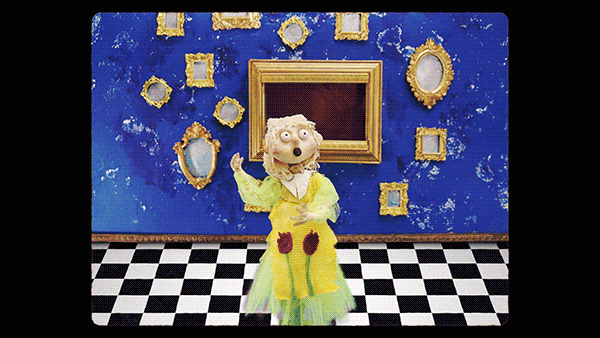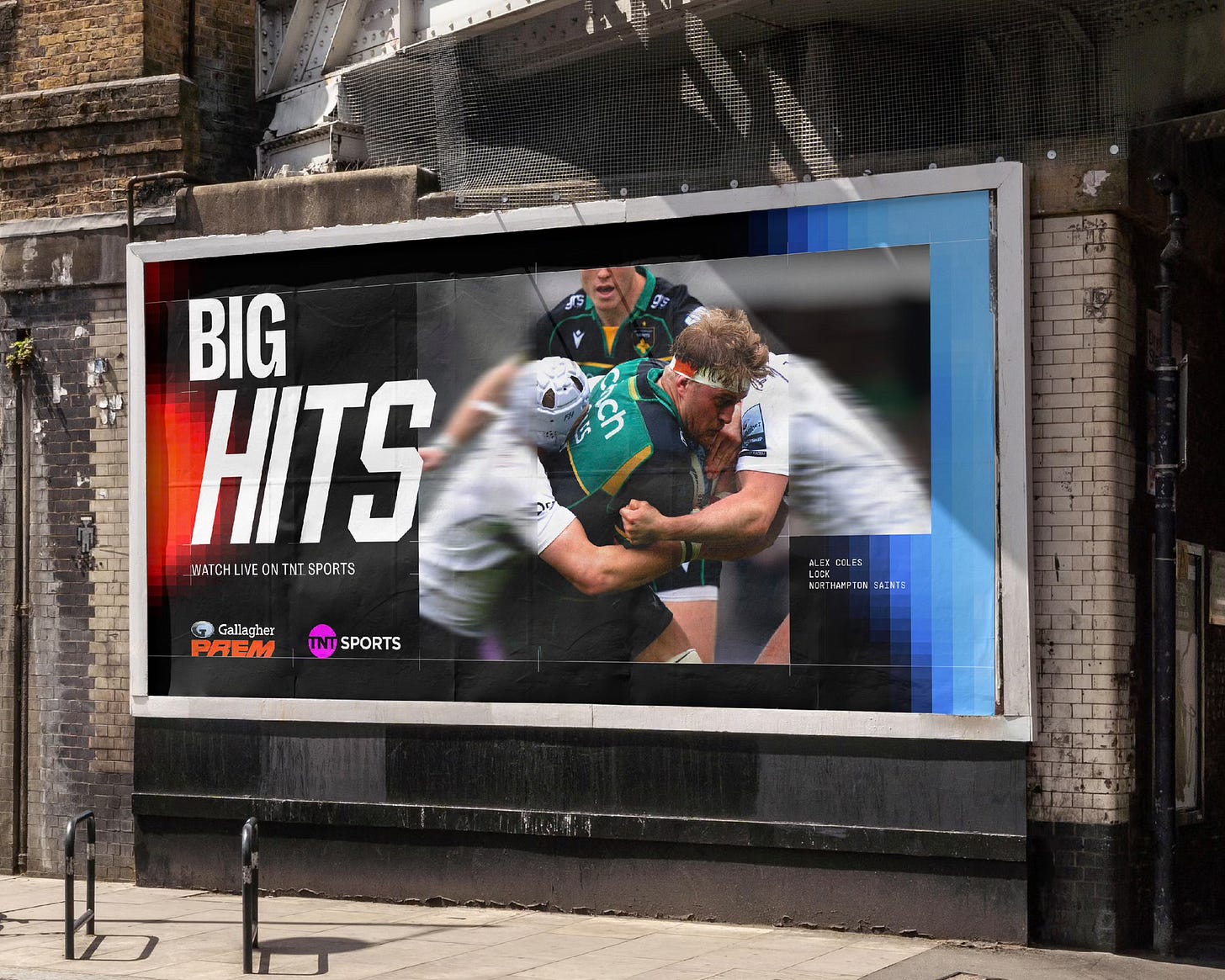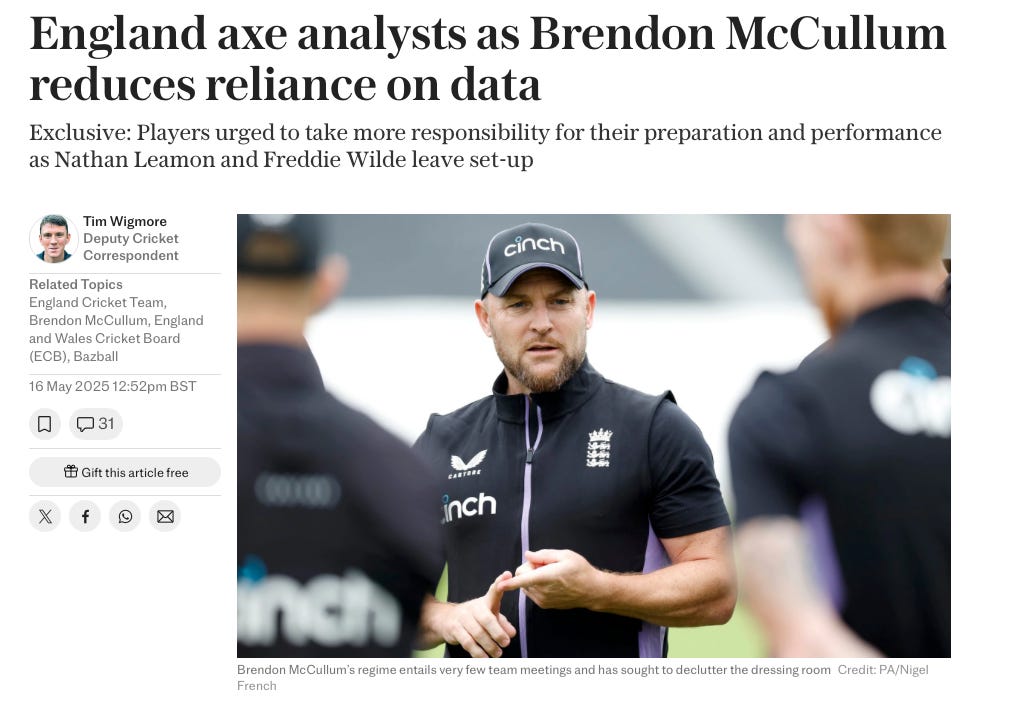UP x 1D = Wedge Issues Live; Golf's vibe shift; AI doesn't fit the sponsorship frame; The Return of the Secret Strategist; Dua Lipa Stans; Captain Myth; Big Hits
Overthinking the sports business, for money
File under, this is going to be great but you can’t come without an invite.
Golf’s Vibe Shift
Session Provocation
“Golf is having a cultural moment.”— Dan Rapaport
Despite low TV ratings and criticism of traditional tours, golf is gaining cultural momentum. Why?
Because the people driving golf's cultural moment are not the same people watching The Open.
I’m going to throw open some themes and it’s up to the guests how they want to respond.
Can you sell a 72-hole, 4-day strokeplay product to an audience raised on TikTok, TopGolf, and Travis Scott?
If not, then the product, not just the marketing, must evolve.
Two markets. Two sets of expectations. One game.
Now what?
It’s about golf but not just about golf.
It’s about every sport in the era of the scroll.
4+ hour broadcasts, 4-day tournaments vs 8-second TikTok scrolls
Quiet, technical, reverent vs Personality-first, entertaining
Performance over persona; Story > stats
Limited social sharing vs Shareable, memeable, viral.
Exclusive venues, high ticket prices vs "All Are Welcome" inclusivity ethos
Strict dress codes, etiquette vs Style, self-expression, fun
Controlled media access vs Behind-the-scenes, unfiltered
Reverence for tradition vs Authenticity, relatability
The very behaviours that drive cultural energy—phones, selfies, style—are discouraged at elite tournaments.
Gonna be good.
UP and Niall Horan on stage together at last.
It’s what the people want.
Sponsorship is the wrong frame for AI
The Premier League’s new deal with Microsoft was - finally - announced this week.
(I say finally because SportBusiness and The Athletic had the story in December last year).
The Premier League is close to announcing Microsoft as a new sponsor, with the brand set to replace Oracle in its commercial portfolio, SportBusiness understands.
Oracle, the software company founded by Larry Ellison, was announced as the league’s ‘official cloud provider’ ahead of the 2021-22 season, agreeing a four-year deal that expires at the end of the current campaign.
As part of its deal, the US technology firm uses its cloud infrastructure to deliver match statistics during live Premier League broadcast coverage.
Yesterday (Monday) The Athletic reported Premier League clubs were notified at a recent shareholder meeting that Microsoft had a agreed a wider technology partnership with the league that was worth a ‘considerable uplift’ on the Oracle agreement.
Sources contacted by SportBusiness indicated the league ran a process to identify the new technology sponsor and that Microsoft showed a greater appetite for the rights.
This week’s comms went big on AI, pushing the line that the league will be using Microsoft to help navigate the future, referencing plans for open-ended natural language queries, expanding translation and subtitling options across multiple languages, and offering audio summaries of match weekends.
And much more besides.
The licensing frame: When presented with a new challenge, sport’s first instinct is to try and package it as a sponsorship deal.
We saw this most recently during the period of NFT-mania, as commercial teams took the opportunity to shove anything labelled web3, blockchain or crypto in to sponsorship license-shaped hole.
If you’ve got a hammer, everything looks like a nail, etc.
Tech deals come in two different versions - shallow or deep.
Shallow is easy. It’s just a badging thing.
If they don’t renew, nothing’s lost. The league moves on to another brand to fit the slot.
Deep is much more difficult.
As anyone who’s ever tried to use a printer will know, the tech is a pain the arse a lot of the time.
It fails in ever more sophisticated ways.
Most rights holder businesses are made up of a patchwork of tech providers that have grown up over time.
It’s a nice idea to consolidate this messy environment in to a single operating system.
But it’s really hard to do in practice - ask anyone who worked at La Liga.
Then you lay in AI.
Or whatever AI means today, compared to what it will mean in three, six, fifteen years.
Every week there’s a shiny new thing, next week ChatGPT will launch an LLM that does the washing.
It’s a fascinating time for everyone to work out how to respond to whatever comes next. The best answer will involve institutional agility.
This is far broader than a single deal. The fascinating question for the sports industry is to balance making money today but not backing the wrong horse via an all encompassing partnership deal.
Oracle had a three year deal. Now it’s Microsoft.
AI needs a long term plan, that shifts with the times.
Not a good marriage.
This is not a new story
A few years ago there was a spate of web3 deal announcements.
FIFA partnered with Algorand; Man Utd with Tezos, and so on.
Each of these multi year deals outsourced the blockchain question to third party vendors in return for short term cash.
But it sets up a longer term problem, for some future regime to deal with.
FIFA Chief Business Officer Romy Gai added: “This announcement is an exciting moment for FIFA, as it officially enters into the world of blockchain and the opportunities this presents across various applications. At FIFA, we must constantly strive to identify and explore the most cutting-edge, sustainable and transparent means of increasing revenues to continue to support global football development. Algorand is clearly a forward looking, innovative partner that can help us achieve these goals.”
Unrelated, but Romy Gai left FIFA shortly after this quote went public. I make this point only that the C-Suite changes on a regular basis, which is another impediment to consistent tech strategy.
I don’t know where FIFA are with blockchain, they don’t talk about it as much as they did three years ago.
But what web3 real estate was given away, and how tied to a specific tech vendor do they remain?
This is more complex than stadium pouring rights or a kit deal. How easy is it to swap out of one vendor’s tech infrastructure and in to another?
I recall Alex Amsel on the UP podcast saying something wise: ‘Don’t annoy your own most loyal fans by switching up the platform from beneath them every three years because the commercial team’s done a new deal with the next blockchain vendor on the rank’.
The Secret Strategist on Cliches and the Cost of Boring
Last week’s podcast with Sid Lee Sport was designed to provoke debate.
Fair to say it worked.
We had several very high profile sports marketers get in touch, offering a counter view.
One of them wrote a blog post on the UP Guest blog.
So, welcome back to The Secret Strategist.
The Secret Strategist: You won’t solve a brand or marketing issue by sponsoring sport. For that look back to the harder work of first setting your brand apart through a differentiating and relevant positioning and campaign. Sport may be a smart way to make that come alive for your audience, but it is simply a conduit, an enlivening carrier, not the core of likely success. Don’t just do it - think first - as Nike did.
For context, Sid Lee Sport’s seven deadly activation sins are as follows:
1. Skills Challenge,
2. The Surprise and Delight,
3. The Carpool,
4. The Emotive Interview,
5. The first PE teacher,
6. The Spotify Playlist,
7. The Fanzone Foosball Table
The peculiar absence of Dua Lipa stans
Taylor Swift fans go dressed as Taylor Swift. Likewise Billie Eilish, Nicky Minaj and Olivia Rodrigo.
Why not?
This is an interesting snippet, from Reddit:
People are getting defensive in the comments and misunderstanding the question: it's not that Dua isn't talented nor that she doesn't have fans; clearly she is and she does, and she's also very deliberate about how she handles her career, which works for her. But the distance that she keeps from the public means she doesn't give stans a narrative to hold on to and look up to; she gives them nothing to project themselves onto and root for. That way she gets to keep out of stan mess and avoid getting burnt out, which is great for her, but the downside is that she lacks the kind of dedicated fanbase that ensures longevity in the industry and guarantees commercial success.
UP Rule: Fan engagement is a euphemism for betting
This story is fascinating and terrible all at the same time.
British tennis player Jodie Burrage was abused online by ‘angry gamblers’ who lost money after she was defeated by Caty McNally at Wimbledon.
This stat is incredible.
A report from the Women’s Tennis Association and International Tennis Federation last month found that “angry gamblers” were responsible for 40 per cent of social media abuse. The figure rose to 77 per cent for direct abuse towards players’ personal accounts.
Makes you wonder what makes up those fan engagement metrics that have become the base currency of the sports economy.
What the algorithm does to rugby
From this week’s podcast on the business of rugby.
The Gallagher Rugby Premiership is now The Prem, in line with fan vernacular. I’m less keen on the section division being called The Champ, but we’ll park that one.
The marketing goes big on physicality, leading with Big Hits.
Another stat worth keeping an eye on is what drives clicks.
Paul Morgan, who ran Premiership Rugby’s comms for a decade said that big tackles and hits get ‘150 times more’ than compilations of great tries.
So, again, give ‘em what they want. But it’s a really delicate issue for the sport against the backdrop of player welfare and concussion.
Captain Myth
I got a call from Rick Broadbent of The Times for a piece he was writing on whether Keegan Bradley could play and captain in this year’s Ryder Cup.
‘Even Gillis’….
See below, the direction of travel is one vice captain per player.
On this thread, we’ve done an episode of Inside Edge on cricket analytics with Freddie Wilde, the former ECB data analyst who’s just back from the IPL where he was part of the triumphant RCB team.
One part of the conversation talks to a big issue in the performance data space, which is about personal responsibility of the player and the question of whether the presence of the data team is encouraging a generation of cricketers, golfers, footballers, rugby players etc, to devolve too much to the analysts.
This seems to be at the heart of this story, again featuring Freddie Wilde, who has emerged as one of the hottest analyst talents in cricket. Note, the story is written by Tim Wigmore, who co-wrote the influential book Cricket 2.0 on the data revolution in the game with…Freddie Wilde.
Can’t wait to share the podcast with you.
Now share this newsletter with someone who might like it.












